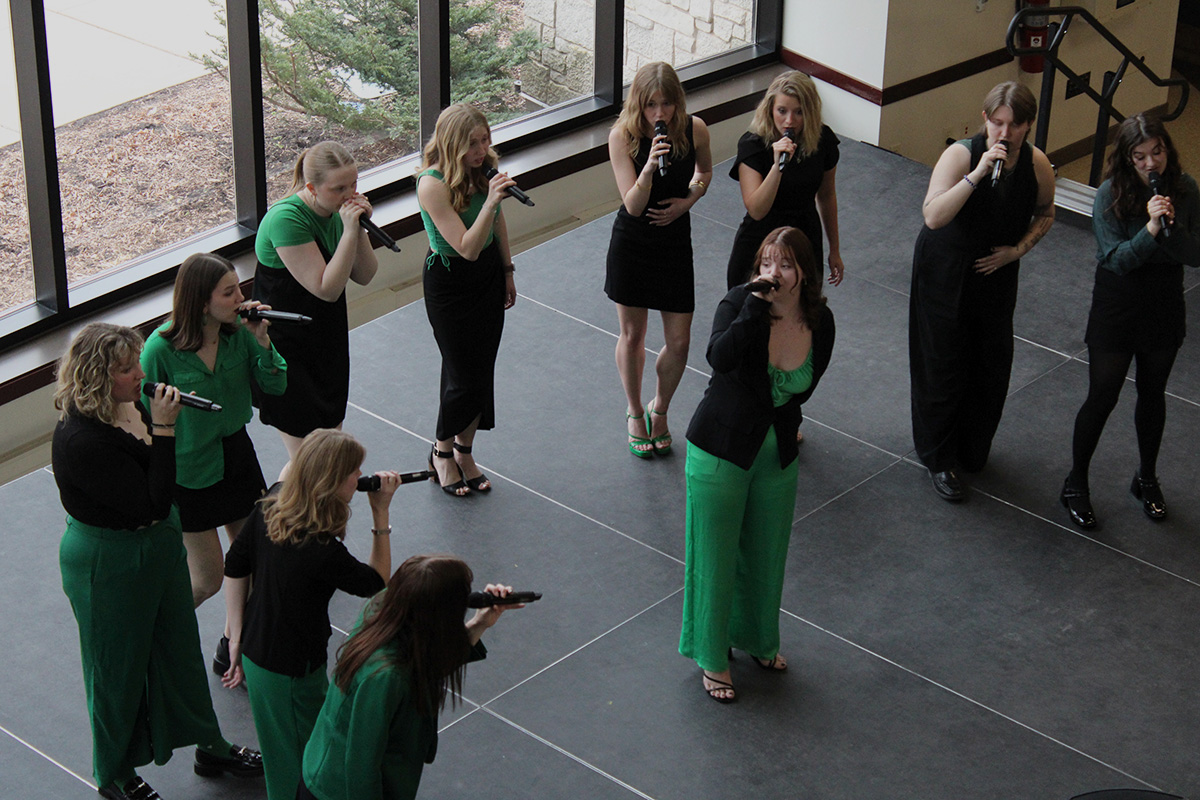Washing his hands is one way senior Kaleb Chaudoir tries to keep himself healthy. He said he takes small preventative steps every day to stay that way.
“I try to eat a good breakfast and shower before I head out,” Chaudoir said. “I attempt to maintain vitamins in my daily routine. Then of course I make sure that I am constantly washing my hands.”
According to the Wisconsin Department of Health Services, western Wisconsin is at a higher than normal influenza activity level.
Influenza can be spread from person to person through the air when a person with influenza coughs, sneezes or talks.
Laura Chellman, director of Student Health Services, said there are ways to prevent yourself from getting the flu.
“The most effective thing is to get the shot,” she said. “Even now, it’s not too late.”
Chellman said there will be flu shots available at Student Health Services located in Crest Wellness Center for students, faculty and staff. Chellman also said the vaccine will decrease chances of getting influenza by sixty percent.
If people that were vaccinated do get the flu, then the virus should take a less severe course and should not last as long.
Jimmy Haggerty, senior political science major, said he did not get a flu shot this year and got sick over winter break.
Haggerty said some of his symptoms included a fever, night sweats, fatigue and congestion.
Although Haggerty did not go see a doctor, he said he had some personal methods to get better.
“(I) slept a lot and drank a lot of fluids,” he said. “I tried to manage the fever with Tylenol.”
Chaudoir also did not get a flu shot this year because he said he wants to maintain a strong immune system and naturally fight off colds. However, he is in support of the vaccine.
“If we can prevent the flu from spreading to those that have weaker immune systems, perhaps we can save some lives,” Chaudoir said.
Since Chaudoir did not get vaccinated, he said he takes personal responsibility to make sure he quarantines himself from others when he is sick.
Chellman agrees staying indoors once influenza symptoms appear is a good idea so exposure to other people is limited.
“Specifically for students, if they are ill, they should e-mail their professors to let them know they are ill and won’t be in class,” Chellman said. “Because that’s the biggest thing, they think they have to be seen to get an excuse not to go to class.”
Chellman said Student Health Service is asking for honesty and responsibility from students, faculty and staff in terms of absences from class and work.
The Wisconsin Department of Health Service says they expect several more weeks of higher than normal influenza activity.
Chellman said some more ways to prevent influenza is by taking care of oneself, getting plenty of rest, good nutrition and frequent hand washing.







